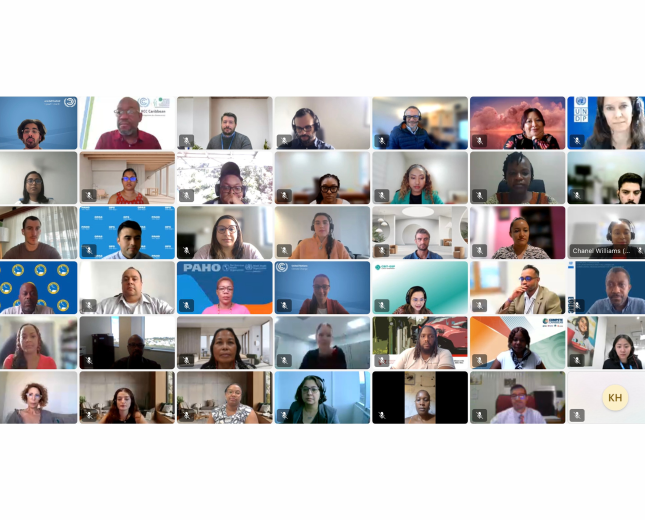Background
The next round of Nationally Determined Contributions (NDCs), due in 2025, require more ambitious targets. The First Global Stock Take (GST1) outcome at COP 28 revealed that while progress has been made in mitigation and adaptation, current efforts are insufficient. To achieve the purpose of the Paris Agreement and its long-term goals, a 43% reduction in emissions from 2019 levels is required by 2030, followed by a 60% reduction by 2035, with the goal of reaching net-zero emissions by 2050. The outcome also notes that the increased financing for adaptation and mitigation is crucial, though barriers to redirecting global capital remain. Governments, investors, and financial regulators must play a key role in overcoming these challenges. The GST also invited the secretariat including their Regional Collaboration Centers (RCCs) and organizations in a position to do so, to provide capacity-building support for the preparation and communication of the next NDCs.
The second round of NDCs showed that current efforts are not on track to achieve the temperature goals of the Paris Agreement. NDCs are essential for demonstrating countries' climate ambition and actions, while also aligning them with national development and the Sustainable Development Goals (SDGs). This is especially relevant now with decision 6/CMA.3 and decision 1/CMA.5 requiring new and more ambitious NDCs from countries to be developed and submitted in February 2025, with targets until 2035.
The Caribbean region faces unique challenges in addressing climate change, including limited financial resources.. Most countries in the Caribbean region have prepared their first and second generation NDCs which have yielded valuable insights on the opportunities and challenges that countries face when developing national climate change targets. With the NDCs 3.0 due in 2025, this webinar aims to support these efforts by providing a platform for policymakers, climate experts, and stakeholders to share best practices and innovative approaches, with a particular focus on financing strategies.
Objectives
To enhance the capacity of the Caribbean countries in developing and implementing ambitious, actionable, and effective NDCs by providing comprehensive guidance to facilitate the preparation of effective investment and implementation plans.
Especially:
- Provide a comprehensive overview of the requirements and expectations for NDC 3.0 submissions, highlighting the importance of increased ambition and investability.
- Guide participants through the process of creating detailed NDC Investment Plans, including aligning climate and development goals, evidence-based investment prioritization, identifying funding sources, leveraging financial instruments, and engaging with international donors and private sector partners.
- Explore opportunities for NDC implementation highlighting the various elements to consider including resource mobilization, policy frameworks, institutional arrangements, and capacity-building measures necessary for successful execution.
- Facilitate knowledge exchange by showcasing successful case studies and best practices from countries within the region, highlighting innovative approaches to NDC implementation and investment and advancing to the mobilization of funding to implement the plans.
- Encourage the preparation of inclusive NDCs through private sector involvement and inclusion of child and gender considerations.
Target Audience
The webinar is specifically designed to provide information to government officials and other relevant stakeholders who are actively involved in the development of NDC Investment and/or Implementation Plans.
The primary target audience for this webinar includes officials working within various governmental departments, ministries, and national agencies responsible for energy, environment, and sustainable development policies. It is also targeting non-party stakeholders including the private sector, non-governmental organizations, civil society organisations and others supporting the government in these processes.
Key Takeaways
- The UNFCCC NDC Technical Support Unit provided an overview of the key outcomes of COP29 and their implications for Caribbean nations, particularly regarding climate finance, carbon markets, and NDC implementation.
- Caribbean countries and other Small Island Developing States (SIDS) are especially vulnerable to climate change and require support to plan for the implementation of their NDCs as well as to identify and secure the relevant sources of funding
- Investment planning is key for the implementation of climate actions as it develops a strategy for identifying and allocating financial resources while finance mobilization involves raising and channeling these financial resources to support NDC implementation
- There are various climate financing tools developed by UNDP that can assist countries to move from NDC planning to implementation by analyzing existing public funds as well as mobilizing additional resources
- The Climate Investment Planning and Mobilization Framework developed by NDCP in collaboration with the GCF is an essential tool for countries to expedite the implementation of climate actions by ensuring that their NDCs are developed to be investment ready
- Belize and Trinidad and Tobago have prepared their NDCs to be aligned with national climate change policies and have developed climate financing and investment strategies to ensure that funding is identified for implementation while making efforts to raise the necessary funding required.
